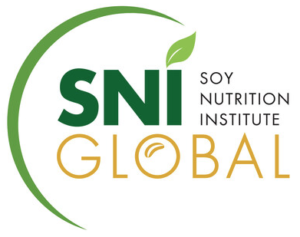The consumption of soymilk can contribute to cardiometabolic health by lowering both blood pressure and blood lipids, elevated levels of which are major risk factors for heart disease. This conclusion comes from a peer-reviewed, statistical analysis conducted by a team of scientists from the University of Toronto, which was published in BMC Medicine and funded by Soy Nutrition Institute Global (SNI Global) with support from the United Soybean Board.
“For this analysis, we sought to understand whether nutrient-dense, plant protein foods like soymilk can be consumed as part of a healthy diet and support cardiometabolic health despite being classified as ‘ultra-processed,'” explained Madeline Erlich, Ph.D.(c), RDN and the lead author of the analysis. “One in three Americans is now familiar with the term ‘ultra-processed foods,’ even though there is no scientific consensus on the definition and many foods classified as ultra-processed are highly rated by other food classification systems used around the world.”
The researchers completed a systemic review and meta-analysis of 17 randomized controlled trials and examined 19 outcomes to determine the effects of soymilk on cardiometabolic health. Findings include:
- Improved blood lipids:
- Moderate reductions in non-HDL-cholesterol, this includes all the “bad” types of cholesterol.
- Lowered blood pressure:
- Large reductions in systolic and diastolic blood pressure
- Small reductions in inflammation:
- Levels of C-reactive protein (CRP), an overall marker of inflammation was modestly reduced
- No other outcomes (including glycemic control, adiposity, NAFLD, and kidney function) differed between soymilk and cow’s milk.
 Soymilk is the only nutritionally suitable alternative to cow’s milk recognized by the U.S. Dietary Guidelines. Other national guidelines such as Canada’s Food Guide and several European food-based dietary guidelines recognize fortified soymilk as nutritionally equivalent to cow’s milk. However, most soymilk is classified as “ultra-processed” – the same category that includes candy bars, chips, and soft drinks. Some soymilks are criticized for containing added sugar but the analysis found that soymilk with added sugar exerted health benefits similar to soymilk without added sugar.
Soymilk is the only nutritionally suitable alternative to cow’s milk recognized by the U.S. Dietary Guidelines. Other national guidelines such as Canada’s Food Guide and several European food-based dietary guidelines recognize fortified soymilk as nutritionally equivalent to cow’s milk. However, most soymilk is classified as “ultra-processed” – the same category that includes candy bars, chips, and soft drinks. Some soymilks are criticized for containing added sugar but the analysis found that soymilk with added sugar exerted health benefits similar to soymilk without added sugar.
While some soymilks contain added sugars that match the sweetness of cow’s milk, its total sugar content is typically about 60% less than that of cow’s milk because of the higher sweetness intensity of sucrose in comparison with the milk sugar lactose. In addition to observed benefits for cardiometabolic health, fortified soymilk provides protein, calcium, and vitamin D comparable to cow’s milk and is lower in saturated fat than cow’s milk.
Soymilk provides protein in amounts similar to cow’s milk; and soy protein is high quality in that it delivers protein similar to animal protein, which makes it unique among plant proteins. The FDA recognized soy protein with an authorized health claim stating, “25 grams of soy protein a day, as part of a diet low in saturated fat and cholesterol, may reduce the risk of heart disease.”





